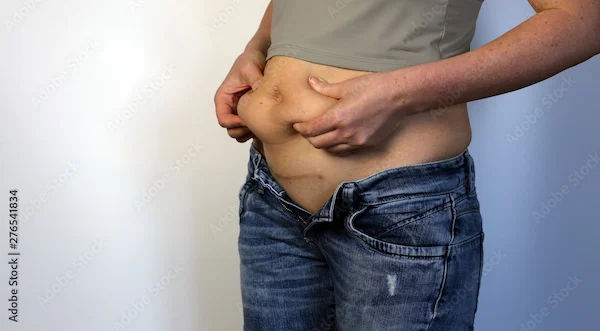Common Issues Women Face In Cycling and How To Overcome Them
Discover common cycling challenges women face, including physical discomfort, hormonal impacts, and safety concerns. Learn practical tips, gear recommendations, and the mental and health benefits of cycling for an empowering and enjoyable experience.

Written by Dr Sonia Bhatt
Last updated on 3rd Jul, 2025
Cycling is a popular activity among women. It offers physical fitness, mental health benefits, and freedom. However, many women face unique challenges while cycling. Addressing these issues can improve their experience and encourage long-term participation. It can help women overcome discomforts, build confidence, enhance safety, and fully enjoy the activity.
Read further for detailed insights into the discomforts women face during cycling and how to overcome them.
Common Physical Discomforts Women Face While Cycling
Below are the common physical discomforts experienced by women cyclists. Proper adjustments, equipment, and techniques can help in reducing these problems:
Saddle sores are a common issue for women cyclists. They result from prolonged friction and pressure on the saddle. Proper bike fit and padded cycling shorts can help prevent them. Using anti-chafing cream and washing gear after rides also reduces risks.
Many cyclists experience numbness in their hands and feet during rides. This occurs when nerves get compressed from poor positioning. Raising or lowering the handlebars often provides relief. Moving the saddle position can also better distribute body weight.
Lower back pain is linked to an incorrect cycling position or weak core muscles. Strong abs and back muscles support proper posture. Daily stretching helps keep muscles flexible. This combination reduces strain during long rides.
A bike that fits well makes all the difference. Proper frame size and adjustments prevent many comfort issues.
How Menstrual Cycles Affect Cycling
Women's cycling performance often changes throughout their menstrual cycle. Many women find their strongest cycling days just after their period ends. Others perform best mid-cycle. Understanding these patterns helps plan better rides:
Hormonal changes during menstruation influence energy levels and stamina.
Women may experience reduced endurance during the premenstrual phase.
The menstrual phase can also impact coordination and focus.
Riding during menstruation doesn't have to be uncomfortable. Adequate preparation makes a big difference.
Moisture-wicking clothes keep skin dry and prevent chafing.
Regular snacks and water breaks maintain energy levels.
Iron-rich foods like lean meats and leafy greens help fight fatigue.
Some cyclists find that a heating pad before rides eases cramp discomfort.
Hormonal Factors Affecting Women Cyclists
Women need to make adjustments to their training due to hormonal fluctuations. Hormones can influence cycling performance as discussed below:
Estrogen levels impact muscle recovery and endurance capacity.
Women may experience reduced performance during the luteal phase due to higher body temperature.
Planning high-intensity rides during the follicular phase can optimise energy levels.
Food choices affect cycling energy in the ways below:
Protein helps muscles recover after tough rides.
Healthy fats from nuts and avocados support hormone balance.
Complex carbs provide steady energy during rides.
Small snacks every hour or two prevent energy crashes.
Safety Measures to Consider
Safety remains a top priority for women cyclists. Here are a few safety tips for women cyclists:
Bright clothing helps drivers spot cyclists easily. Reflective strips work well in low light.
A properly fitted helmet protects against serious injury.
Following traffic rules keep everyone safer. Staying focused on the surroundings prevents accidents.
Simple habits like signalling turns and checking blind spots become automatic with practice.
Here are a few tips to maintain bike or cycle safety:
Regularly checking tyre pressure and brake functionality prevents accidents.
Lubricating the chain and gears ensures smooth rides.
Carrying a basic repair kit helps handle minor mechanical issues.
Mental and Emotional Aspects
Emotional challenges affect many women cyclists, particularly beginners. Here are a few tips on how to overcome self-doubt:
Joining beginner-friendly cycling groups helps build confidence.
Setting achievable goals allows steady progress in skills and endurance.
Celebrating small victories builds confidence.
Building confidence and resilience is essential for the sport. Mental resilience develops through challenging rides and weather conditions. This can be achieved through the techniques below:
Visualisation techniques improve focus and motivation during challenging rides.
Regular practice strengthens mental endurance and reduces anxiety.
Seeking support from other cyclists creates a sense of community.
Cycling Gear Selection for Women
The right cycling gear enhances comfort, performance, and safety. Women should prioritise selecting gear suited to their specific needs. Here’s how to choose the right cycle:
A bike that matches the rider's height and body proportions ensures comfort.
Women-specific designs often include narrower handlebars and shorter frames.
Test-riding different models helps find the perfect fit.
Here are a few quality apparel that enhance the riding experience:
Padded cycling shorts prevent discomfort during long rides.
Moisture-wicking fabrics regulate body temperature.
Sports bras provide the necessary support for comfort.
Essential accessories include properly fitted helmets and gloves.
Cycling shoes improve power transfer to pedals.
Weather-appropriate layers protect against elements.
Health Benefits of Cycling for Women
Women who cycle regularly experience noticeable health benefits, including:
Blood pressure levels drop with consistent cycling.
It lowers the risk of hypertension and heart disease.
Many cyclists find it easier to maintain their ideal weight. A 30-minute ride burns calories effectively.
The exercise raises metabolism even after the ride ends.
The mind also benefits from regular cycling. The benefits are:
Fresh air and movement lift the mood naturally.
Pedalling through neighbourhoods or nature trails calms racing thoughts.
Regular riders develop a positive outlook on life.
The simple act of riding helps clear the mind and reduce daily stress.
Building Community Connections for Women Cyclists
A supportive cycling community can help women overcome discomforts. Experienced cyclists mentor beginners, offering guidance and motivation. Local clubs host events and workshops, while social rides build confidence and skills. Training groups also enhance performance.
Online websites and forums provide tips on cycling techniques and gear, and virtual communities connect cyclists worldwide. Social media groups allow women to share their journeys and find support from others.
Conclusion
Cycling offers countless benefits but comes with challenges, especially for women. Addressing physical discomforts, managing hormonal influences, and prioritising safety are essential steps to ensure a positive experience.
Building mental resilience, choosing the right gear, and engaging with supportive communities empower women to enjoy cycling while reaping its health and wellness benefits.
Consult Top Dietician
Consult Top Dietician

Ms. Shruthi Bhargavi
Dietician
9 Years • Msc (Nutrition and Dietetics)
Hyderabad
Apollo 24|7 Clinic - Telangana, Hyderabad

Ms. Poushali Ghosh
Dietician
9 Years • Msc in Applied Nutrition
Barasat
Diab-Eat-Ease, Barasat

Ms. Anupriya
Dietician
7 Years • B.Sc(Clinical Nutrition & Dietetics),M.Sc(Clinical Nutrition & Dietetics),Certified Diabetes Educator, Certificate course in Renal Nutrition.
Lucknow
Delight Sun Hospital, Lucknow

Ms. Ipsita Ghosh
Dietician
7 Years • Diploma in Dietetics Examination
Kolkata
Nutrimed, Kolkata

Ms Suchanda Guha
Dietician
10 Years • M.Sc (Applied Nutrition), B.Sc (Food & Nutrition), Diploma (Yogic Nutrition)
Kolkata
NutriKutir, Kolkata

